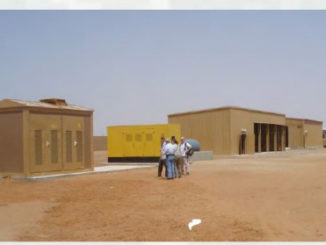
Village of the Dammed in Panama
Source: In These Times
In Panama, the Ngäbe-Buglé fight to save their river and their land.
Walking along the stone and dirt road that follows the Tabasará River to the construction site of Panama’s controversial Barro Blanco hydroelectric dam is a bit like stepping into a Gabriel García Márquez novel, one titled Chronicle of a Battle Foretold. The road is blocked by huge felled trees and seemingly endless piles of rocks and boulders. You know the battle’s coming, but you don’t know when, or how violent it will be.

